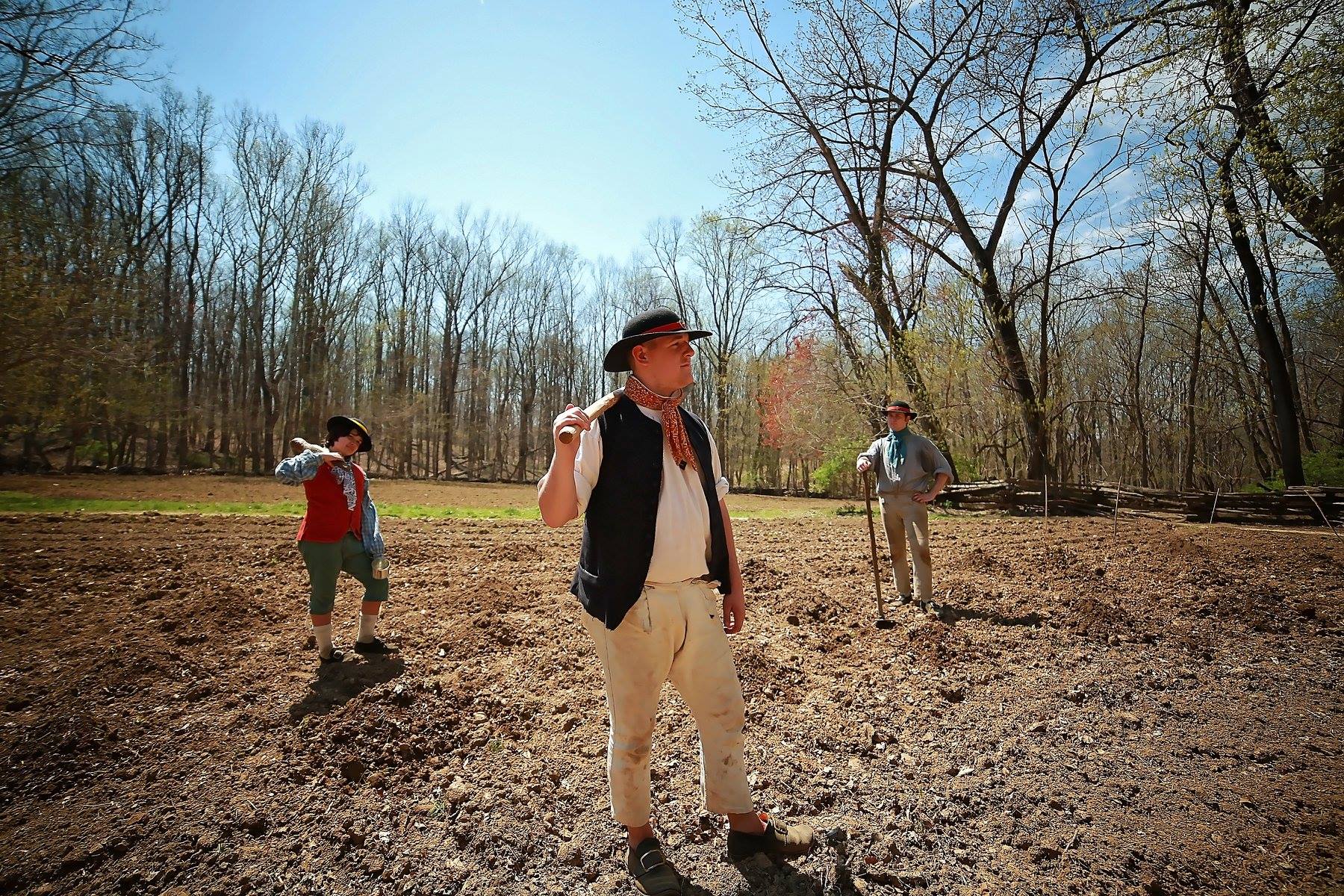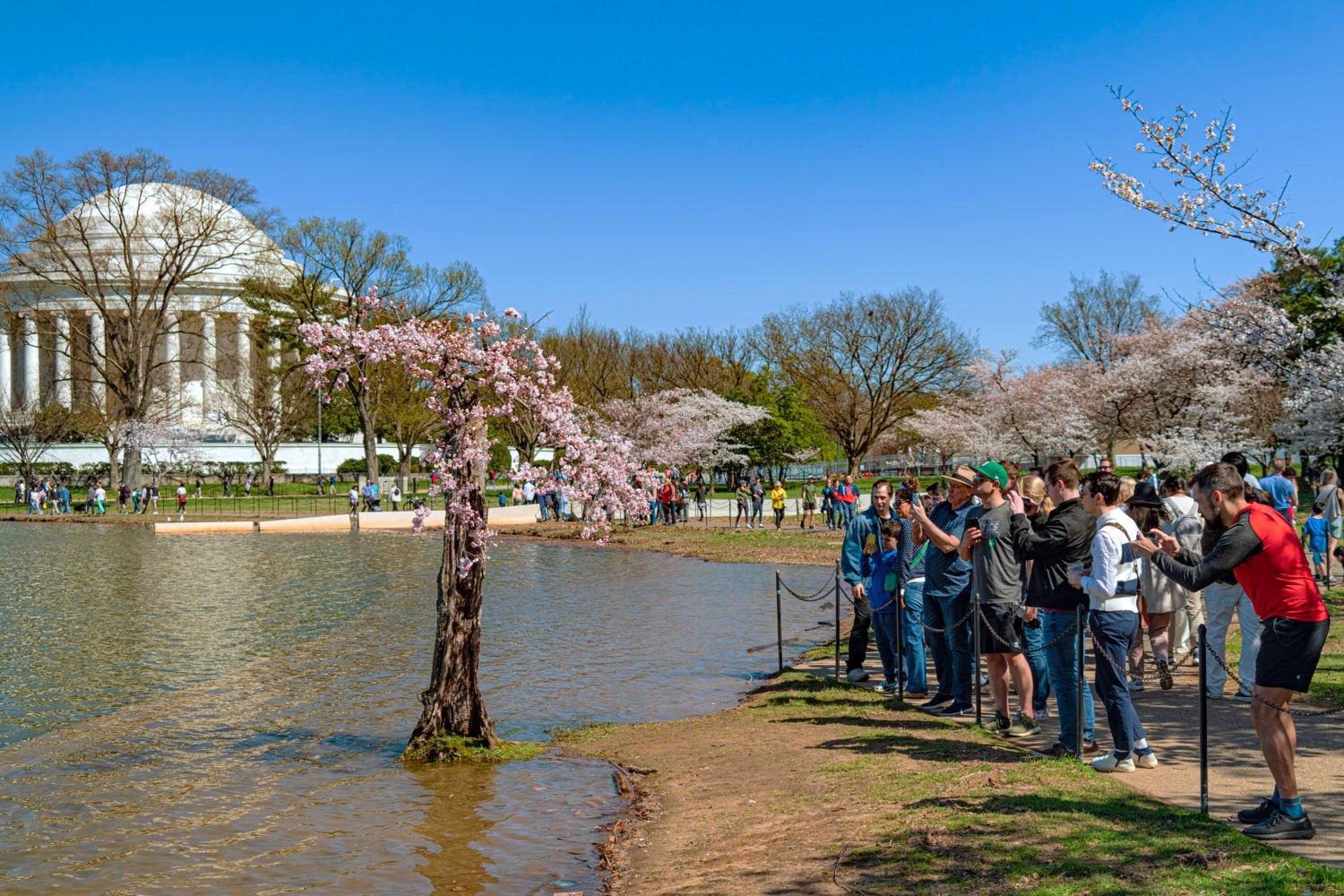Claude Moore Colonial Farm in McLean could close unless the National Park Service and a nonprofit can come to terms. After six years of negotiations to secure a long-term agreement, the federal agency notified the farm that the entire site will be closed to the public, staff and volunteers, effective December 21.
The nonprofit, Friends of Claude Moore Colonial Farm, has run the farm on NPS land for 37 years. It’s hoping for legislation and an outcry from the public to stall the closure.
“I feel like we come in on the fourth act of the play,” says Anna Eberly, managing director of the farm, known for its popular living history demonstrations that represent poor colonial farmers. “Everybody has a script and we don’t have one. I cannot figure out why the Park Service would do this because it’s certainly not in their interest.”
Friends of Claude Moore signed a short-term extension in March, but opposed the terms of the Park Service’s proposed long-term deal, which the Friends described as “burdensome, oppressive and impossible under which to operate the Farm.”
Eberly says that the ten-year agreement would have required the nonprofit to seek approval for all printed materials and sales to the public, and only sell books about the NPS or 18th-century farming. It also would have required the group to pay for management of the farm’s picnic grounds, currently operated by a third-party restaurant, J.R.’s Custom Catering, and would limit its ability to apply for grants. “It would have been a slow death for the farm,” Eberly says.
NPS Spokesperson Jenny Anzelmo-Sarles said in a statement that the proposed long-term agreement would have “required the organization to comply with current laws and policy and included terms that are standard for National Park Service partners along with some flexibility to accommodate the organization’s interests. Although we negotiated in good faith, in the end, the standard terms and legal requirements of a long-term agreement were not accepted by Friends of Claude Moore Colonial Farm.”
Anzelmo-Sarles also says that the Friends group has received funding from the National Park Service—almost $1.3 million since 2001—and that the NPS has provided hundreds of thousands of dollars to design a sewerage system for the farm, conducted safety and food inspections, and has shared road maintenance with the friends group. “To be clear, the National Park Service has absolutely no interest or plans to sell the park or pursue any kind of commercial development on the property,” she says.
NPS stresses that the farm always closes in December. The main question is who will reopen the park next year. “It’s possible that the NPS could still provide living history programming with the farm’s existing volunteers,” Anzelmo-Sarles says. “It’s possible a new partner could step in to provide programming, its also possible something different could happen altogether.”
Eberly says the “farm operates without one penny from the federal government.” She suspects that the NPS might be gearing up to give the land to Fairfax County or convert the land into baseball fields. However, George Washington Memorial Parkway superintendent Alexcy Romero said in a statement that the NPS never had the intention of closing the farm. “All this means right now is that the farm will close as winter approaches, as it always has.”
So far, the Friends group has rallied public participation on its website and Facebook page, and US Representatives Barbara Comstock and Donald Young have drawn up legislation to keep the farm operating and open to the public.
Eberly says that this is her fourth “Save the Farm” initiative, and that the farm has been in a power struggle with NPS for decades. Indeed, this isn’t the first time the farm has closed or been close to being shut down. Each time, the Friends have sought the help of the people and local legislators to keep the farm alive. During the government shutdown in fall of 2013, the farm was forced to close despite its workers refusing to leave because they weren’t technically federal employees.
“It’s unfortunate that you end up using the stick, when you should be able to just sit down and come to rational decisions,”Eberly says. “A lot of time is wasted, and you get the feeling that they’re doing it on purpose. Do they think we’re just going to give up and go away? They just grind you into dust.”




















